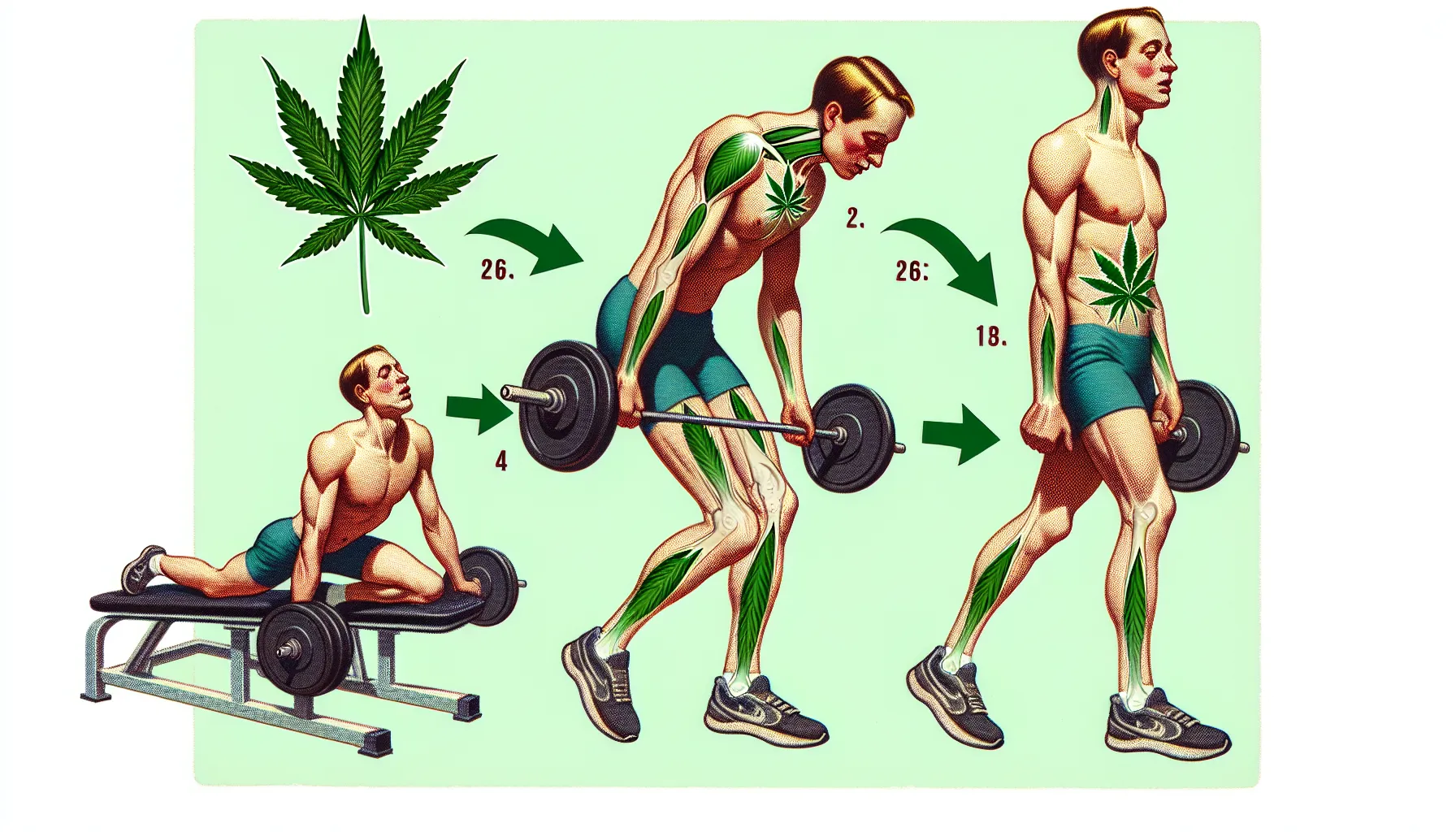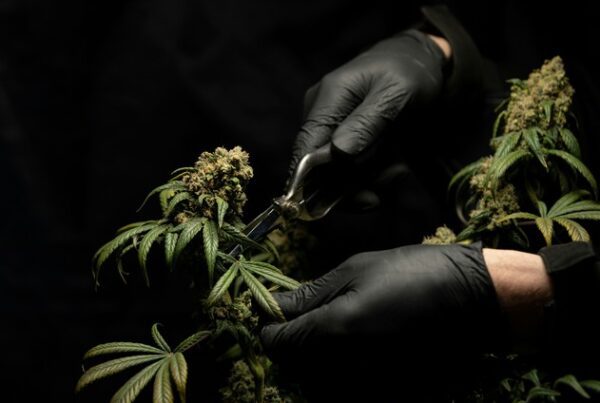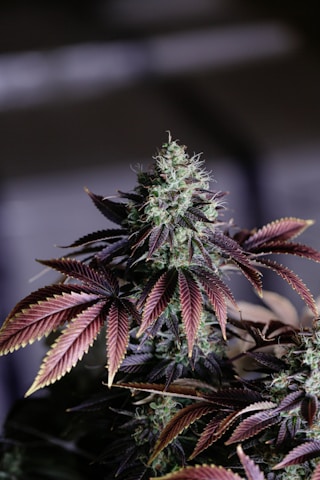 The use of cannabis among athletes for performance enhancement and recovery has been a topic of increasing interest in recent years. Athletes from various sports have turned to cannabis as a potential aid in their training and recovery routines. However, the use of cannabis in the athletic community is not without controversy.
The use of cannabis among athletes for performance enhancement and recovery has been a topic of increasing interest in recent years. Athletes from various sports have turned to cannabis as a potential aid in their training and recovery routines. However, the use of cannabis in the athletic community is not without controversy.
Potential Benefits of Cannabis for Athletes
- Pain Management: Proponents argue that cannabis can help athletes manage pain, providing relief from injuries and chronic conditions.
- Inflammation Reduction: Cannabis is believed to have anti-inflammatory properties, which could aid in recovery from intense workouts or injuries.
- Improved Sleep: Some athletes claim that cannabis helps them relax and improves the quality of their sleep, leading to better recovery.
- Anxiety Alleviation: Cannabis may help reduce anxiety, allowing athletes to perform better under pressure.
Controversies Surrounding Cannabis Use in Athletics
- Impaired Judgment: Critics express concerns about the potential negative impact of cannabis use on athletic performance, suggesting that it may impair judgment and decision-making abilities.
- Decreased Motivation: Some argue that cannabis use can lead to decreased motivation and hinder an athlete’s drive to excel.
- Health Risks: The potential long-term health risks of cannabis use, such as respiratory issues, are also a point of contention.
By examining the available research and expert opinions, we hope to shed light on this topic and encourage thoughtful discussions among athletes and the broader athletic community.
The Impact of Cannabis on Exercise Performance
Cannabis and exercise performance have been topics of interest for both athletes and researchers. Many people wonder how cannabis affects physical performance, including endurance, focus, and pain tolerance. While some studies suggest that cannabis may have potential benefits in these areas, there is still a need for more research to fully understand the relationship between cannabis and exercise performance.
Endurance
One of the potential effects of cannabis on exercise performance is its ability to enhance endurance. Some athletes believe that cannabis can help them push through fatigue and perform at a higher level for longer periods of time. However, the evidence on this is limited and mixed. While some studies have shown a positive correlation between cannabis use and increased endurance, others have found no significant difference. It’s important to note that individual responses to cannabis can vary, and more research is needed to determine how it may affect endurance in different populations.
Focus
Another aspect of exercise performance that cannabis may impact is focus. Some athletes claim that cannabis helps them stay in the zone and maintain concentration during training or competition. This could be particularly beneficial for activities that require sustained attention, such as long-distance running or endurance sports. However, the effects of cannabis on focus are complex and can vary depending on the individual and the strain of cannabis used. Some research suggests that cannabis may impair attention and cognitive function, while other studies have found no significant impact. Further investigation is needed to fully understand how cannabis affects focus during exercise.
Pain Tolerance
Pain tolerance is another area where cannabis may play a role in exercise performance. Many athletes use cannabis to manage pain and inflammation, especially for chronic conditions or injuries. Cannabis contains compounds called cannabinoids, such as THC and CBD, which are known for their analgesic properties. These cannabinoids interact with the body’s endocannabinoid system, which plays a role in pain perception. Some studies have shown that cannabis can reduce pain intensity and improve pain tolerance, potentially allowing athletes to train harder and recover more quickly. However, more research is needed to determine the optimal dosage, timing, and strain of cannabis for pain management in the context of exercise.
While there is some evidence suggesting potential benefits of cannabis on exercise performance, it’s important to note that the research in this area is still limited. Many studies have focused on chronic cannabis users rather than healthy individuals, making it difficult to generalize the findings. Additionally, cannabis affects individuals differently, and the optimal dosage and strain may vary from person to person. As cannabis legalization expands and more research is conducted, we will gain a better understanding of how cannabis can impact exercise performance. In the meantime, it’s essential to consult with a healthcare professional before incorporating cannabis into your exercise routine to ensure it aligns with your specific needs and goals.
Cannabis and Systems-Level Cardiorespiratory Physiology
The use of cannabis can have a significant impact on cardiorespiratory physiology, affecting important factors such as heart rate, blood pressure, and lung function. When consumed, the cannabinoids in cannabis interact with the body’s endocannabinoid system, which plays a crucial role in regulating various physiological processes.
One of the most well-known effects of cannabis is an increase in heart rate, also known as tachycardia . This occurs because cannabinoids bind to the cannabinoid receptors in the heart, leading to an increased contraction rate.
Along with an elevated heart rate, cannabis use can also cause a temporary increase in blood pressure. This is due to the vasodilatory effects of cannabinoids, which result in the relaxation and widening of blood vessels. While these changes may not be a cause for concern in healthy individuals, they can pose risks for those with pre-existing cardiovascular conditions. It is important for individuals with heart conditions to consult with their healthcare provider before using cannabis, as it may exacerbate their symptoms or interact with their medications.
In addition to cardiovascular effects, cannabis use can also impact lung function. Smoking cannabis involves inhaling the combustion byproducts, which can irritate the respiratory system and lead to symptoms such as coughing and wheezing. Chronic cannabis smoking has been associated with an increased risk of respiratory issues, including bronchitis and chronic obstructive pulmonary disease (COPD). However, it is worth noting that these risks are primarily associated with smoking cannabis, and alternative methods of consumption such as vaporizers or edibles may mitigate some of these respiratory effects.
When considering the potential risks and benefits of cannabis use on cardiovascular and respiratory health in the context of athletic performance, it is important to evaluate individual factors such as overall health, fitness level, and the specific sport or activity being performed. While cannabis may have acute effects on cardiorespiratory physiology, there is limited research on its long-term impact on athletic performance.
Some studies suggest that cannabis use may impair performance by affecting coordination, reaction time, and cognitive function. On the other hand, cannabinoids like CBD have been explored for their potential anti-inflammatory and pain-relieving properties, which could be beneficial for athletes recovering from intense physical exertion or injuries.
It is essential for athletes and individuals considering cannabis use to weigh the potential risks and benefits, taking into account their unique circumstances and consulting with healthcare professionals. As with any substance, moderation and responsible use are key. It is also important to note that the effects of cannabis can vary depending on the strain, potency, and method of consumption. Understanding the potential impacts on cardiorespiratory physiology can help individuals make informed decisions about cannabis use in relation to their overall health and athletic performance.
CBD and the Elite Athlete
Cannabidiol (CBD) has gained significant attention in recent years for its potential role in athletic performance and recovery. Athletes are constantly seeking ways to optimize their performance and enhance their recovery, and CBD has emerged as a potential solution. Let’s explore the role of CBD in athletic performance and recovery, as well as its potential benefits and the need for further research.
Potential Benefits of CBD for Athletes
Reducing Anxiety
Many athletes experience pre-competition nerves and performance anxiety, which can have a negative impact on their performance. CBD has been shown to have calming effects on the body and mind, potentially helping athletes manage their anxiety and perform at their best. By promoting a sense of calmness, CBD may help athletes focus and concentrate on their performance, leading to improved results.
Improving Sleep Quality
Adequate sleep is crucial for recovery and optimal performance, but many athletes struggle with sleep issues. CBD has been found to have sleep-promoting properties, helping individuals fall asleep faster and stay asleep longer. By improving sleep quality, CBD may aid in the recovery process and enhance overall performance.
Managing Pain and Inflammation
Intense training and competition can lead to muscle soreness, joint pain, and inflammation. CBD has been shown to have anti-inflammatory properties and may help alleviate pain. By reducing inflammation and managing pain, CBD may support faster recovery and enable athletes to train more consistently.
The Need for Further Research
While there is promising evidence regarding the benefits of CBD for athletes, more research is needed to determine the optimal dosage and timing of CBD use. Each athlete’s needs and physiology are unique, and further studies are necessary to establish evidence-based guidelines. It is important for athletes to consult with healthcare professionals and adhere to regulations regarding CBD use in their respective sports.
CBD has the potential to play a significant role in athletic performance and recovery. Its ability to reduce anxiety, improve sleep quality, and manage pain and inflammation makes it an attractive option for athletes. However, more research is needed to fully understand its effects and establish clear guidelines for its use. As CBD continues to gain recognition, athletes should stay informed and consult with professionals to make informed decisions about incorporating CBD into their training and recovery routines.
Cannabis and Muscle Recovery
When it comes to muscle recovery and repair, cannabis has shown potential effects that can aid in the process. One of the main reasons for this is the anti-inflammatory properties of cannabinoids. These compounds have been found to reduce inflammation, which is a common cause of muscle soreness and discomfort after a workout.
Cannabinoids, such as THC and CBD, have been studied for their ability to decrease inflammation in the body. Inflammation occurs when the body’s immune response is triggered, leading to redness, swelling, and pain. By reducing inflammation, cannabis can help alleviate muscle soreness and promote faster recovery.
Several studies have explored the use of cannabis for post-workout recovery and muscle healing. One study published in the Journal of Pain Research found that cannabis use was associated with a significant reduction in pain intensity and improved sleep quality in chronic pain patients. Another study published in the journal Frontiers in Physiology reported that CBD, a non-psychoactive compound found in cannabis, reduced inflammation and oxidative stress in muscle cells.
While more research is needed to fully understand the effects of cannabis on muscle recovery, these initial findings are promising. However, it’s important to note that individual experiences may vary, and it’s always best to consult with a healthcare professional before incorporating cannabis into your post-workout routine.
Neuroprotection and Traumatic Brain Injury
Cannabis has gained attention in recent years for its potential neuroprotective effects, particularly in the context of traumatic brain injury (TBI). TBI can have devastating consequences, leading to long-term cognitive impairments and neurodegeneration. However, research suggests that cannabinoids found in cannabis may offer some protection against these harmful effects.
One way that cannabinoids exert their neuroprotective effects is through their interaction with the endocannabinoid system (ECS). The ECS is a complex network of receptors and endocannabinoids that are found throughout the body, including in the brain. When cannabinoids from cannabis are consumed, they can bind to these receptors and modulate brain function.
Studies have shown that activating the ECS with cannabinoids can help reduce inflammation and oxidative stress, two key factors in the development of neurodegenerative diseases. Inflammation is the body’s response to injury or infection, but when it becomes chronic, it can lead to damage to brain cells. Oxidative stress occurs when there is an imbalance between the production of reactive oxygen species and the body’s ability to neutralize them, resulting in damage to cells and tissues.
By modulating the ECS, cannabinoids can help reduce inflammation and oxidative stress, potentially protecting against the neurodegenerative processes that occur after TBI. Research has shown promising results, with animal studies demonstrating improved cognitive function and reduced brain damage following TBI when cannabinoids were administered.
However, it is important to note that the research on cannabis and TBI is still in its early stages, and more studies are needed to fully understand the long-term effects of cannabis use on brain health in athletes. While there is evidence to suggest that cannabinoids may have neuroprotective properties, it is crucial to conduct further research to determine the optimal dosage, timing, and specific cannabinoids that may be most beneficial.
Knowledge Gaps and Recommendations
When it comes to the impact of cannabis on athletic performance and recovery, there are still many knowledge gaps that need to be addressed. Despite the growing interest in this topic, current research is limited and often inconclusive. So, what are some of these gaps, and what recommendations can we make for future studies?
Lack of Controlled Trials with Larger Sample Sizes and Diverse Populations
One major knowledge gap is the lack of controlled trials with larger sample sizes and diverse populations. Many of the existing studies have small sample sizes and focus on specific groups, such as chronic cannabis users or athletes with certain medical conditions. This makes it difficult to generalize the findings to the broader population of athletes. To fill this gap, future studies should aim to include a larger and more diverse range of participants. This will allow for a more comprehensive understanding of how cannabis affects different individuals and athletic performance as a whole.
Legal and Ethical Implications of Cannabis Use in Sports
Another important consideration is the legal and ethical implications of cannabis use in sports. While cannabis is now legal in many states and countries, it is still prohibited by most sports organizations. This creates a dilemma for athletes who may benefit from cannabis use for pain management or recovery. Future studies should not only explore the physiological effects of cannabis on athletic performance but also take into account the legal and ethical considerations. This will help guide policymakers and sports organizations in developing policies that are fair and evidence-based.
In conclusion, there are several knowledge gaps in our understanding of the impact of cannabis on athletic performance and recovery. To address these gaps, future studies should prioritize controlled trials with larger sample sizes and diverse populations. Additionally, the legal and ethical implications of cannabis use in sports should be carefully considered. By addressing these gaps and conducting more rigorous research, we can gain a clearer understanding of how cannabis can be safely and effectively used by athletes.
The Impact of Cannabis on Athletic Performance and Recovery
The impact of cannabis on athletic performance and recovery is a topic that has garnered increasing attention in recent years. Cannabis can potentially offer both benefits and risks for athletes.
Potential Benefits
- Analgesic and Anti-inflammatory Properties: Certain strains of cannabis have been found to have analgesic and anti-inflammatory properties, which can aid in pain management and muscle recovery.
- Improved Sleep Quality: Cannabis may help improve sleep quality, which is essential for optimal athletic performance.
- Reduced Anxiety: Cannabis may also help reduce anxiety, allowing athletes to perform better under pressure.
Potential Risks
- Impaired Coordination and Reaction Time: Cannabis use can impair coordination and reaction time, which can negatively affect athletic performance.
- Impaired Cognitive Function: Cannabis use can also impair cognitive function, which can impact decision-making and performance.
As research on cannabis and its impact on athletic performance continues to evolve, it’s crucial for athletes to stay informed and make educated decisions about their cannabis use. While some studies suggest potential benefits, more research is needed to fully understand the long-term effects and optimal dosage for athletes. It’s also important to consider the legal and regulatory aspects of cannabis use in sports, as different governing bodies may have varying rules and restrictions.
If you’re interested in exploring cannabis cultivation or further exploring the potential benefits of cannabis, Original Johnny Seed Bank offers a wide variety of high-quality cannabis seeds. Their strains are known for their unique aromas, potent effects, and high THC content. Whether you’re looking for CBD-rich hybrid seeds, indica seeds, or sativa seeds, Original Johnny Seed Bank has options to suit your preferences. They even offer a 10% discount for new customers and free shipping on orders over $60 for 12 packs of seeds.
To learn more about their products and start your cannabis cultivation journey, visit Original Johnny Seed Bank . Stay informed, stay curious, and discover the potential benefits of cannabis for athletic performance and recovery.










